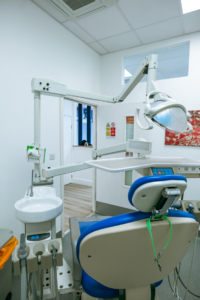Pregnancy can significantly affect your oral health.
In keeping with the theme of children and maternity this month, we thought we’d share a few facts and pointers on how to look after your teeth during pregnancy.
The hormone progesterone increases during your pregnancy which increases the blood supply to your mouth. With the hormonal changes, you are also more vulnerable to the effects of plaque on your gums. These two factors can lead to more bleeding and inflammation, known as pregnancy gingivitis. In some cases the inflammation and irritation can cause overgrowth of the gums, and swelling, called pregnancy epulis. As well as bleeding gums, bad breath can also be a sign of pregnancy gingivitis.
If left untreated, gingivitis can lead to periodontitis, where the bones holding your teeth in can reduce in height and density, leading to loose teeth. Additionally, bacterial toxins released due to severe gum disease have been linked to preterm labour and have been shown to potentially affect foetal development.
Morning sickness can mean that the stomach fluids may coat your teeth repeatedly, which will weaken and erode the enamel of your teeth. This can lead to sensitivity and potential cavities if not managed correctly. Women suffering with particularly bad reflux or morning sickness may experience severe, irreversible damage to their teeth.
Dietary changes are common during pregnancy as nutritional needs of the baby change, and if you experience cravings. This can lead to more frequent snacking. Frequency of snacks can increase your risk of decay meaning you are more prone to cavities and will require fillings to fix the problems.

Optimal oral health means maintaining good oral hygiene habits. Brushing twice a day with a fluoride toothpaste and flossing everyday. Although when you are pregnant you are more susceptible to gum disease, good oral hygiene reduces the risk of bleeding gums significantly.
Attend the dentist for 6 monthly check ups and regular hygiene visits help to identify any problems before they become toothache, and remove the more stubborn build ups
of calculus. If you are deemed high risk by your dentist they may decide to see you more regularly to ensure your mouth stays healthy.
Rinsing you mouth out thoroughly after a bout of morning sickness may help protect your teeth. We recommend a high fluoride mouthwash to remove as much acid as possible. Do not brush your teeth for at least 40 minutes after the morning sickness, as much as you may want to, as this will wear away the softened enamel leading to more erosion.
Try and reduce your sugar intake. We understand you might have a craving for something sweet but try not to have it too frequently, or instead, have it with a meal. This does include fruit consumption, fruit juices and sugary drinks. Reducing the frequency and reducing snacking on sweeter items and carbohydrates will protect your teeth from potential cavities.
Ensure you are taking your folic acid and that your vitamin D levels are maintained. Lower levels have been shown to affect the health of the oral tissue.
Most commonly x-rays will be taken only if there’s a dental emergency, otherwise avoided. In the event of an emergency, your dentist will assess the pros and cons and provide you with your options before proceeding with anything you may be uncomfortable with. With the small amount of radiation (equivalent to 2 hours of background radiation), and localised aim of the x-ray, the risk to your baby is extremely low.
If you need a filling, this is completely safe, as is the local anaesthetic we use to numb the area. We recommend going ahead if your dentist recommends, as leaving decay for months can lead to more difficult or invasive treatment needed at a later time.
You may experience more bleeding during hygiene sessions. This is completely normal because of the increased blood supply. The cleans will be reducing the factors causing irritation to your gums leading to a healthier oral environment.

 View all Treatments
View all Treatments


we accept all insurance including